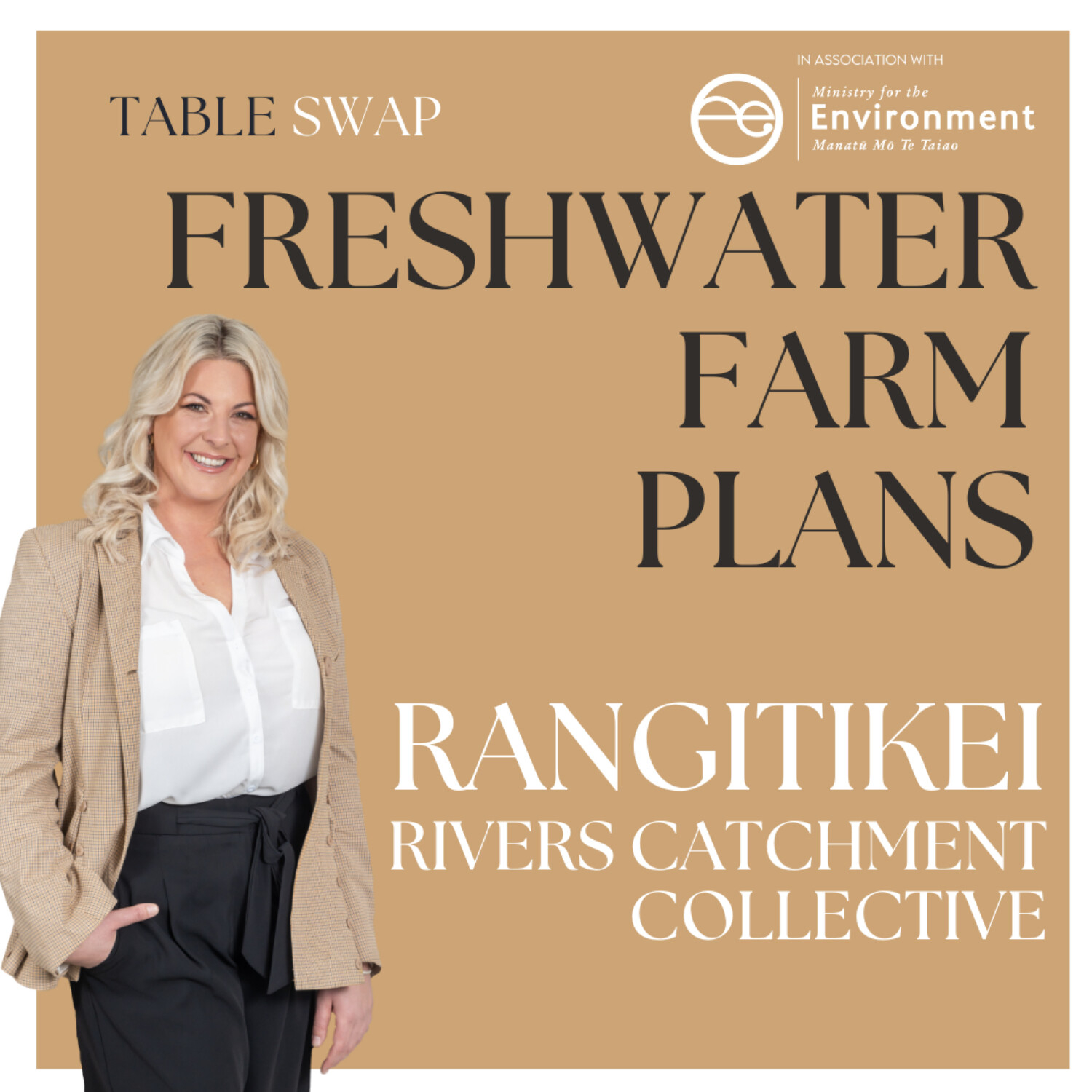How do those tasked with implementing environmental policy best engage with farmers to come up with solutions that are best for the land and are fit for purpose?
Ministry for the Environment has partnered with Sarah's Country to hit the road across the lower North Island in late 2021 to get out of Wellington and onto the farm to hear & see directly from farmers.
In this third and final episode as part of the three-part series, Sarah Perriam takes Director of Policy Implementation & Delivery, Sara Clarke, meets Rangitikei Rivers Catchment Collective Chair and three-generation farmer, Roger Dalrymple along with dairy farmer, Greg Maughan.
Sara is joined by her colleague, Gin Loughnan, Manager of the Climate & Water Agriculture team at the Ministry for the Environment who is keen to work together with catchment groups to ensure that freshwater farm plans are workable and avoid duplication.
"The first thing we have to do is get farmers to understand why they are putting their environment plans on paper when bankers will tell you we can't get farmers to pull together farm budgets yet. It's a massive leap!" stresses Roger Dalrymple, Waitatapia Farming
TOP 10 things in THIS EPISODE
Sara Clarke & Gin Loughnan sits down with the Rangitikei farmers to discuss:
1. Over 300 farmers have joined the sub-catchment groups of the Rangitikei Rivers Catchment Collective "which will tell you that if you give farmers the challenge they will be empowered to create the solutions"
2. Farmers need environmental policy guidance that is apolitical and doesn't change between government terms where the pathway doesn't change on them.
3. The narrative that New Zealand farmers are doing it all wrong and portraying our practices as third-world when dairy farmer, Greg Maughan was working in Indonesia and reading this message looking at polluted waterways.
4. Gin asks how the government can support the community ownership of the solution around freshwater quality.
5. Roger's experience with dealing with a spectrum of farmers to bring them along and to educate them on where the changes need to happen takes time, more collaborative science and improved connectivity.
6. Can freshwater farm plans be justifying what farmers are already doing and change the conversation around proving the good work than it being led as a government, box-ticking exercise?
7. Roger & Greg explain that community catchments only work for 3-6 months of the year for farmers as calving, lambing, shearing, harvesting and weaning takes their focus and therefore the milestones to achieve outcomes need to be set at a time that works with the farming calendar.
8. Sustainable Land Use Initiative (SLUI) under Horizon District Council cost between $12-$14,000/per farm that was funded by Horizon for erosion control and soil mapping are great management tools.
9. Roger advises against the integrated environmental farm plan being digital-only due to internet accessibility and the digital literacy of farmers but may lead to catchment support to help all farmers to get farm environment plans.
10. Gin & Sara want to know what role industry bodies are playing in supporting farmers. Roger points out that the industry groups don't have the time to bring farmers along on the journey because the government's policy consultation timeframes are too tight.
links
Learn more about Freshwater Farm Plans
This episode is the first in a new weekly series for 2022 on Sarah's Country 'Table Swap' out discussing the big issues facing New Zealand's primary sector around farmers' kitchen tables working on ways to move forward collectively.
WIN ONE OF THREE PREMIUM PASSES TO THE FARMAX CONFERENCE (9th & 10th March 2022) complete with a Farmax subscription (valued at $200)!
CLICK HERE (Entries Close 7th March 2022)


 Play
Play
